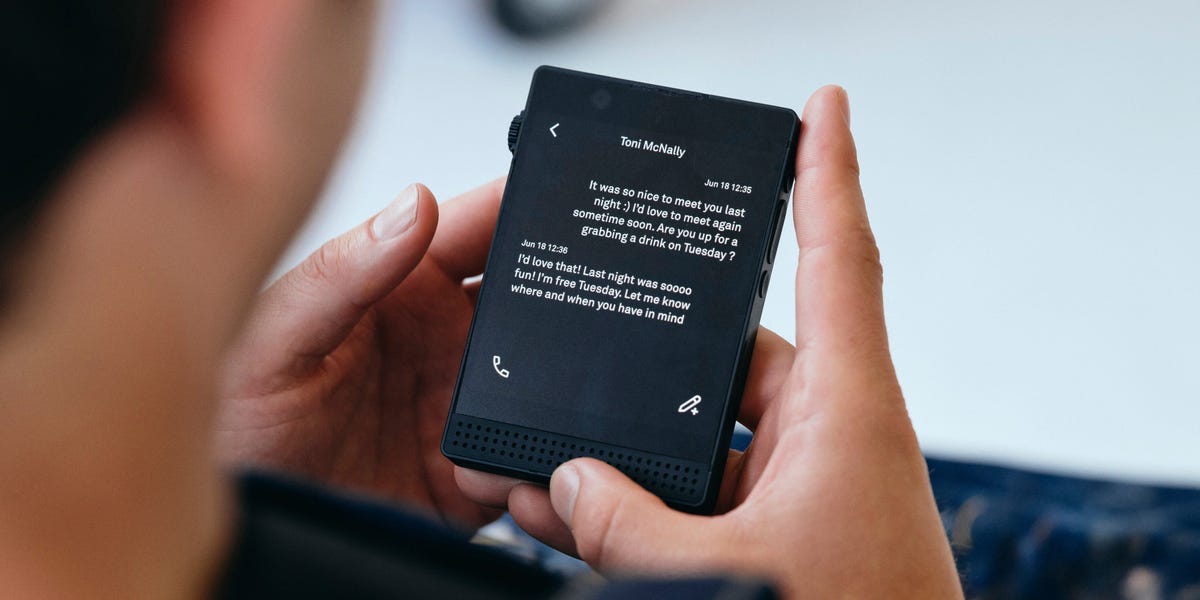What Cellphone Users Can’t Live Without: Insights from a ‘Dumb Phone’ Innovator
In an era where smartphones reign supreme, it’s easy to forget the humble beginnings of mobile technology. As we’ve transitioned from basic handsets to powerful mini-computers, the landscape of mobile communication has drastically changed. However, a surprising trend has emerged: the rise of ‘dumb phones.’ These devices, characterized by their simplicity and functionality, are gaining traction among users seeking a break from the constant barrage of notifications and distractions. This article explores what cellphone users truly value, informed by insights from a leading ‘dumb phone’ innovator.
The Appeal of ‘Dumb Phones’
At first glance, one might assume that a ‘dumb phone’ lacks the essential features that users can’t live without. However, the reality is quite the opposite. Many consumers are realizing that the endless capabilities of smartphones can often lead to stress, anxiety, and digital fatigue. In response, a growing number of people are turning back to simpler devices, seeking a more balanced lifestyle.
Returning to Basics
Dumb phones typically offer fundamental functionalities: calling and texting. Some even include basic internet access or simple apps, but the focus remains on connectivity without the overwhelming features. According to a recent survey, 35% of respondents expressed a desire to reduce their screen time, with many indicating that a simpler phone could help them achieve this goal.
One notable innovator in this space, a company that has embraced the ‘dumb phone’ ethos, emphasized that their goal is to provide a product that encourages users to engage more meaningfully with their surroundings. They believe that the essence of communication is often lost in the whirlwind of apps and notifications.
Essential Features Users Value
So, what features do cellphone users truly value when it comes to their devices? Insights from both the dumb phone market and user feedback reveal several key elements that stand out:
- Battery Life: Users appreciate devices that can last for several days without needing a charge. Dumb phones often excel in this area, offering extended battery life due to their minimal power consumption.
- Ease of Use: The simplicity of a dumb phone interface allows users of all ages to navigate their devices without confusion. This is particularly appealing to older generations or those who are not tech-savvy.
- Durability: Many dumb phones are designed to withstand rough handling, making them ideal for users who need a reliable device for outdoor activities or demanding jobs.
- Focus: With fewer distractions, users find that they can concentrate better on their tasks and relationships, leading to increased productivity and enhanced well-being.
Unplugging from the Digital Noise
One of the most significant insights shared by the dumb phone innovator is the value of unplugging from the digital noise. Users report feeling overwhelmed by constant notifications, social media updates, and the pressure to stay connected at all times. By switching to a simpler device, many have found relief from the stress associated with digital connectivity. One user shared, “I didn’t realize how much I was missing out on real-life interactions until I switched to a dumb phone. It’s liberating!”
Shifting Perspectives on Necessity
The increasing popularity of dumb phones challenges the notion of necessity in our tech-driven lives. Many consumers are reevaluating what they truly need from their devices. Is a high-resolution camera essential, or is it more important to have a phone that facilitates genuine conversations? As people begin to prioritize real-life experiences over digital ones, the demand for ‘dumb phones’ continues to grow.
Rethinking Connectivity
This shift in perspective is reshaping how manufacturers approach mobile technology. The innovator behind a popular ‘dumb phone’ brand noted that their design philosophy centers on creating devices that foster authentic connections. “We want our users to feel more present in their lives,” they stated. “It’s not just about making calls; it’s about the quality of those calls.”
Potential Drawbacks of ‘Dumb Phones’
While there are many advantages to using a dumb phone, it’s essential to consider potential drawbacks as well. For some users, the lack of advanced features can be a limitation. Here are a few challenges faced by dumb phone users:
- Limited Functionality: Users accustomed to smartphones may miss features like GPS navigation, high-quality cameras, and extensive app ecosystems.
- Connectivity Issues: Certain dumb phones may not support the latest network technologies, potentially leading to connectivity problems in some areas.
- Social Pressure: In a world where being connected is often seen as a status symbol, some users may feel socially isolated or out of touch when using a simpler device.
Finding the Right Balance
Ultimately, the decision to switch to a dumb phone is a personal one. It requires an understanding of one’s lifestyle and priorities. For many, the benefits of reduced screen time, enhanced focus, and meaningful connections outweigh the limitations that come with a simpler device.
Conclusion: Embracing Simplicity in Communication
The insights from a dumb phone innovator shed light on a growing movement towards simplicity in communication. In a world where smartphones dominate, many users are discovering the value of returning to basics. By prioritizing essential features like battery life, ease of use, and the ability to unplug, consumers are redefining what they truly can’t live without.
As we continue to navigate our tech-driven lives, it’s essential to consider the balance between connectivity and presence. For some, a ‘dumb phone’ may just be the answer to reclaiming control over their digital lives. Whether it’s for enhancing productivity or fostering deeper connections, the appeal of simplicity has never been clearer.
See more Future Tech Daily

